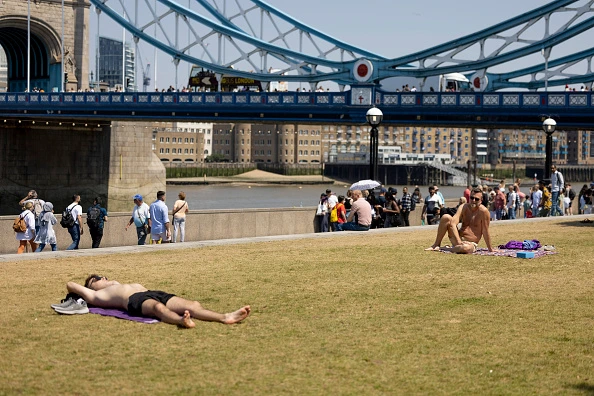
The 2022 summer heatwave in the UK broke records – and it won’t be the last spell of such severe heat. In fact, climate change means that hot summers that would once occur twice a century may soon occur twice a decade. As the population grows and ages, this will lead to more premature heat-related deaths and place extra strain on physical and mental health services.

Previous research on resilience to heatwaves, such as a report by parliament’s Environmental Audit Committee, a cross-party group of MPs, has focused predominantly on policy, regulation and infrastructure. Such research barely addresses behavioural or social responses that occur during hot weather events and how these can contribute to building resilience.
This is what my own work looks at. I explore these ideas in a book and assessed how to improve resilience to climate change through communication, collaboration and co-production. So what can the UK do to be better prepared for heatwaves in future?
1. Remember that heatwaves are a serious threat
People must be trained to think more carefully about their vulnerabilities and responses to hot weather. Everyone’s experience of hot weather varies, and this is often associated with positive memories of past summers where they’d enjoy the heat, venture outside and make the most of a potentially short-lived summer.
But this often leads to people being more exposed to the effects of the sun, which affects their health and productivity and puts extra strain on hospitals. Hot temperatures also cause roads to melt, the Tube to heat up and train tracks to buckle, resulting in delays. As hot weather becomes more common, people need to bear these things in mind.
2. Factor in behavioural change
While appropriate regulation and policies are important, they must represent how people respond to heatwaves and how their experiences affect their behaviour. This can be incorporated into broader thinking around other topics.
Buildings, for instance, can be insulated to stay warm in the winter yet cool in the summer, but we need to better understand how people behave in buildings during those periods to ensure appropriate use.
[Read more: London heatwave: How will the city’s services be affected?]
And working practices can be adjusted so people can work outside during periods of intense heat. People rarely want to stay at home all day, so more water fountains should be provided in public places.
3. Get better at talking about hot weather
British people famously love talking about the weather. But they still need to get better at talking about heatwaves specifically, and how they can become more resilient to them. That means things like sharing whether they’re feeling the load of the hot weather or sharing ways to stay cool.
Better communication will also help people understand who’s doing what during a hot weather event (for example, emergency services under extra strain, or bus and train drivers working in tough conditions).
4. Learn from the neighbours
Learn from other others. Mediterranean countries, for instance, are used to the hot weather and people there have adopted simple practices to help them cope with the stress: closing shutters during the hot weather, avoiding being outside or on the beach during peak heat temperatures, painting buildings white, staying hydrated and avoiding strenuous activities during hot weather. Countries in northern Europe that are just getting used to severe heatwaves could adopt these practices.
5. Invest in resilience and communication
Investment should be proactive, rather than reactive. That means working closely with scientists to anticipate the risks from heatwaves, and getting a better understanding of our vulnerabilities and the potential measures we can take. Ensure buildings (especially hospitals and care homes) and infrastructure are better prepared to withstand hot weather events and that regulation is updated to better reflect this, without which the number of heatwave-related deaths would increase.
This article is by Dr Candice Howarth, head of local climate action at the LSE Grantham Research Institute on Climate Change and the Environment, is republished from The Conversation.






